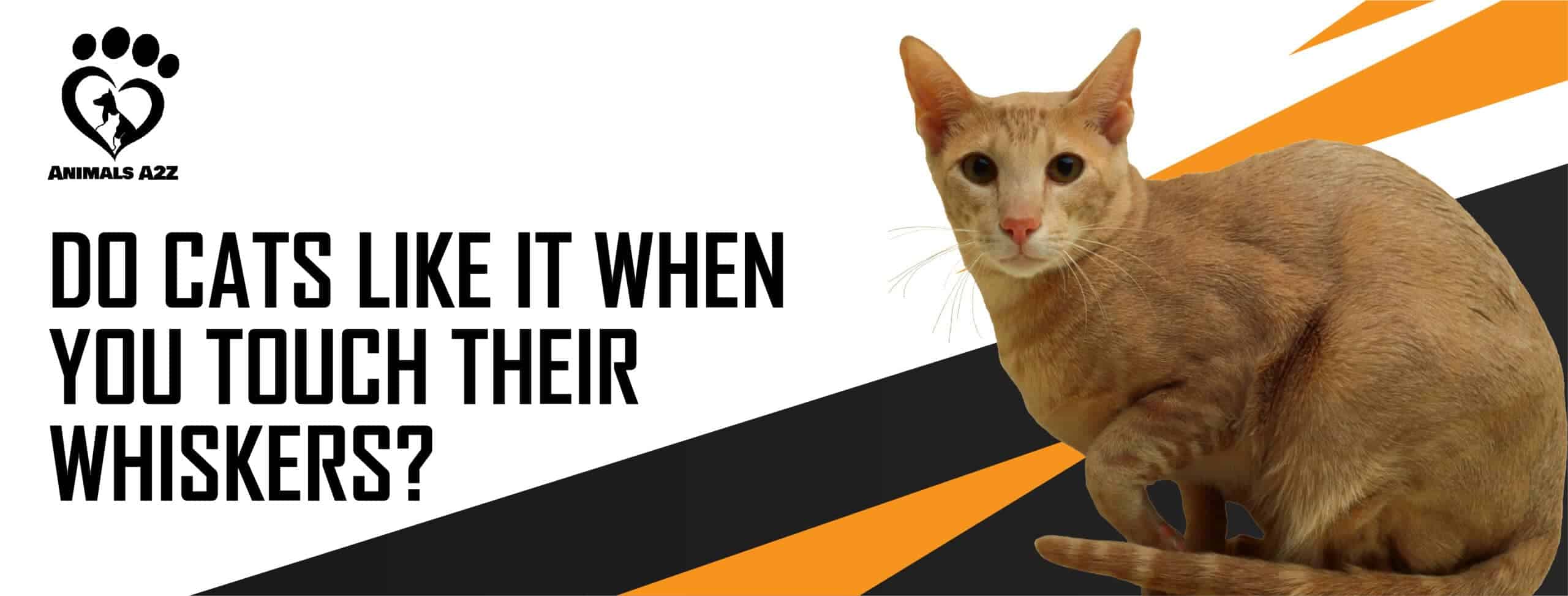Ah, petting cats are equal parts satisfying and tricky. Touch them one way and they love it, touch them another way, and boom, it’s a scratch fest.
While all cats are different, with some welcoming and even loving receiving belly rubs – something most cats will agree is an unforgivable sin, there are spots where it’s completely fine to pet your cat there, and some, where it’s recommended you don’t.
Some cats like it when you touch their whiskers, and some cats don’t like it when you touch their whiskers. In many cases, cats love when you scratch right behind their whiskers. As long as you don’t pull in the whiskers or in any way break them, you shouldn’t be afraid of touching the whiskers or right behind them.
Table of Contents
How well do you know the cat
First things first: do you know the cat you’re petting? Better yet, does this cat KNOW YOU? If you haven’t yet, introduce yourself to this cat. Extend your fingers to them low so they can give you a good sniff, the cat’s preferred way of meeting new people. This is when they’ll decide whether you’re a threat or not. We all hope they think the latter.
Once you are formally introduced, you’re welcome to start the petting session. There are a couple of tried and true spots where it’s universally acceptable: like down their backs (pay extra attention at the end of the back, right before the tail), and at the base of their ears where they have a concentration of scent glands.
What about at their whiskers? It’s a yes and no. Some cats will welcome the light scratch behind their whiskers, but under no circumstances should you ever, EVER pull on them.
All 24 (this is the average number of) whiskers on your cat’s face is more than just hair. Sure, they’re made of the same stuff: keratin, just like your nails and hair – but they’re also connected to the muscles under their skin that will help them navigate, maintain their balance, enhance their sense of touch, let them know if they can fit a certain opening or not, and even help them react to the changes in the environment.
You cat can actually control their whiskers at will. When they are hunting, they will point their whisker forward to sense the movement of their prey. They’re also an easy tell on what your cat’s mood is: if they’re perky and forward, they’re happy, if it’s flat against their face, they’re probably not in the right mood and should be left alone.
Don’t believe in how cool your cat’s whiskers are? Here’s a way to conduct a simple test that will be safe for you and your cat: touch their whiskers one side of their cute little face, and they’ll wink. While it is cute when they do that, they’re not doing that to be cute. Their whiskers just sent a signal to their brain telling it to protect them by closing their eyes.
While your cat will surely appreciate it when you pet them, take special care to not break or pull out their whiskers. But don’t get stressed if they break, because after a few months, they will start growing back – they’re hair, after all.
[crp]
Why are cats’ whiskers important?
Your cat’s whiskers benefit them in several different ways. It helps them get a sense of their environment, keep them balanced and more than ready to go on their hunting sessions. On top of that, your cat can also move their whiskers to match their mood. When they’re sad they droop, or get flush flat against their face, but when their whiskers are perky, they’re happy and contented.
What happens when a cat loses their whiskers?
When your cat loses their whiskers, it can cause a few problems for them. They will be a bit disoriented and more prone to panic and even aggressive as a form of self-defense.
Without their whiskers, it would be as if they’re in a world of darkness, without even their sense of touch to feel around to help them find their way. While it won’t really physically hurt them when their whiskers fall off, get damaged, or get cut, it will take a toll on them until they have grown out enough whiskers back.
What to do if my cat loses their whiskers?
It’s absolutely normal for cats to lose their whiskers. Just like the rest of their fur, or even human hair, their whiskers will shed. Their whiskers will usually shed in a pattern so your cat will not lose any of their amazing benefits.
For most cats, as long as their hair follicle is not damaged repair, it will eventually grow back.
Around the 11th week of your kitten’s life, they will break off their whiskers for playing too rough. They may even shed it so fast, it would seem they lost them all overnight, but you shouldn’t panic.
When you should be concerned is if your senior cat is losing their whiskers so much, even when they’re not as active as they used to be. Consult your local vet as it could be a sign of sickness.
Pet your cats with care. When you do touch their whiskers, take that time to check whether they have a healthy amount of them to live a normal, happy, active life.


